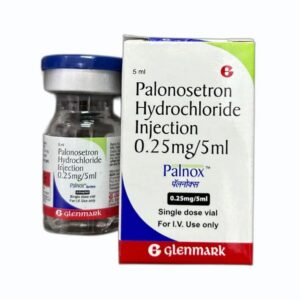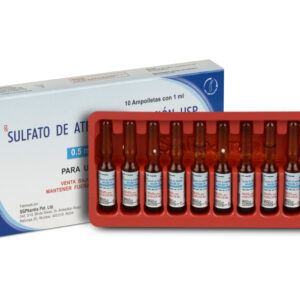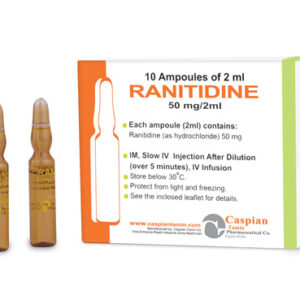-
Palonosetron Hydrochloride
Palonosetron Hydrochloride is a long-acting 5-HT3 receptor antagonist used to prevent nausea and vomiting.
Applications:
-
Prevents acute and delayed nausea/vomiting from moderately to highly emetogenic chemotherapy.
-
Also used for postoperative nausea and vomiting.
Side Effects:
-
Common: headache, constipation, dizziness.
-
Serious (rare): QT prolongation, hypersensitivity reactions.
Br120.00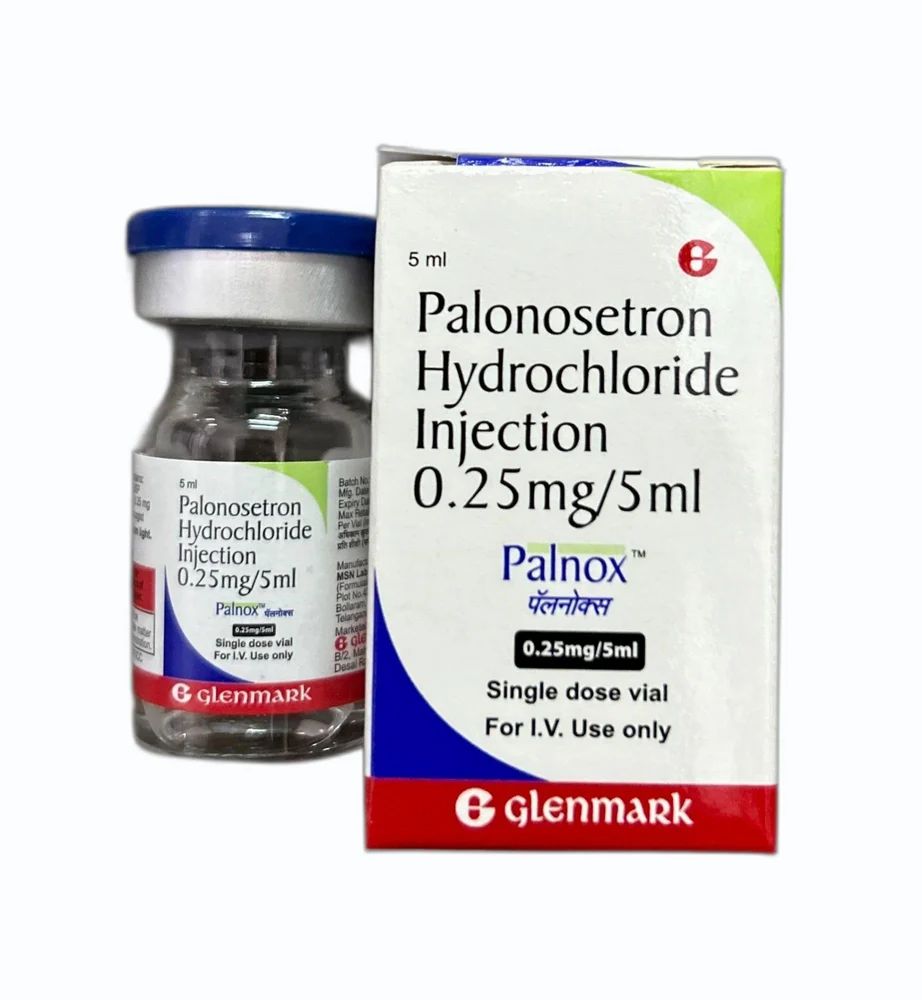
Palonosetron Hydrochloride
Br120.00 Select options This product has multiple variants. The options may be chosen on the product page -
-
Meclizine Hydrochloride
Meclizine Hydrochloride is an antihistamine used to treat motion sickness and vertigo.
Applications:
-
Prevents and treats nausea, vomiting, and dizziness from motion sickness.
-
Manages vertigo from inner ear disorders like Ménière’s disease.
Side Effects:
-
Common: drowsiness, dry mouth, and blurred vision.
-
Serious (rare): confusion, especially in older adults.
Br120.00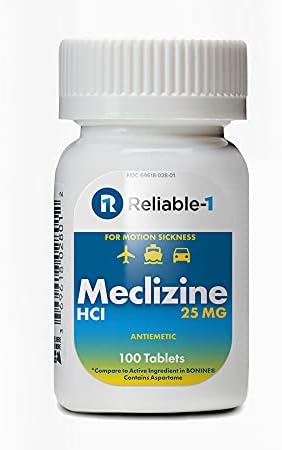
Meclizine Hydrochloride
Br120.00 Select options This product has multiple variants. The options may be chosen on the product page -
-
Drotaverine
Applications:
-
Abdominal Pain: Relieves cramps in IBS, gastritis, or menstrual discomfort.
-
Biliary Colic: Eases spasms in gallbladder/bile duct disorders.
-
Urinary Tract Spasms: Treats discomfort from kidney stones or UTIs.
-
Gynecological Use: Reduces labor pains (off-label) and dysmenorrhea.
Side Effects:
-
Common: Dizziness, nausea, mild headache.
-
Rare:
-
Allergic reactions (rash, itching).
-
Low blood pressure (with high doses).
-
Rapid heartbeat (tachycardia).
-
Br120.00

Drotaverine
Br120.00 Select options This product has multiple variants. The options may be chosen on the product page -
-
Atropine Sulphate
Applications:
-
Pre-Anesthesia: Reduces saliva and respiratory secretions before surgery.
-
Bradycardia: Emergency treatment for abnormally slow heart rate.
-
Poison Antidote: Countacts organophosphate or nerve agent poisoning.
-
Ophthalmic Use: Dilates pupils for eye exams or inflammation treatment.
-
GI Disorders: Relieves spasms in irritable bowel (rarely used today).
Side Effects:
-
Common: Dry mouth, blurred vision, rapid heartbeat, dizziness.
-
Serious:
-
Hallucinations/confusion (high doses)
-
Urinary retention
-
Glaucoma attacks (with eye drops)
-
Dangerous tachycardia (overdose)
-
Note:
-
IV/IM use only in emergencies (hospital/EMS).
-
Reverses life-threatening cholinergic toxicity (e.g., pesticide poisoning).
Br120.00
Atropine Sulphate
Br120.00 Select options This product has multiple variants. The options may be chosen on the product page -
-
Ranitidine
Applications:
- Used to treat gastroesophageal reflux disease (GERD), peptic ulcers, and conditions where the stomach produces too much acid (like Zollinger-Ellison syndrome).
- Reduces stomach acid production, helping to heal ulcers and manage heartburn or acid reflux.
- Can be used for the prevention and treatment of ulcers and conditions like indigestion.
Side Effects:
- Common side effects include headache, dizziness, constipation, or diarrhea.
- Rare but serious side effects may include liver problems, irregular heartbeats, and severe allergic reactions.
- Long-term use can occasionally lead to vitamin B12 deficiency.
Ranitidine is effective in controlling excess stomach acid but was withdrawn from many markets (including the U.S.) in 2020 due to concerns over a potential carcinogenic impurity. For those still using it, monitoring for side effects is important, especially if taken for prolonged periods.
Br120.00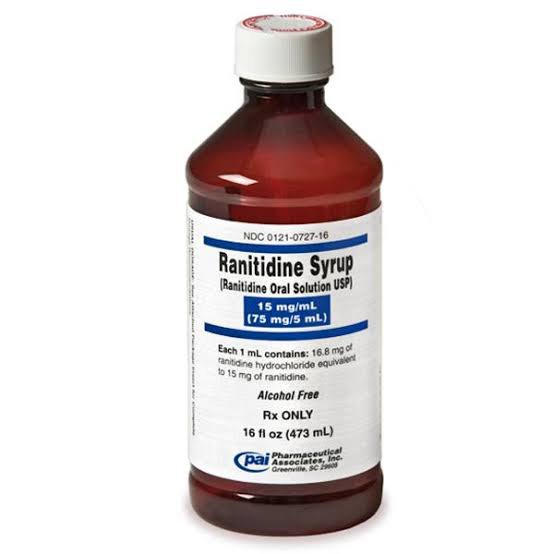
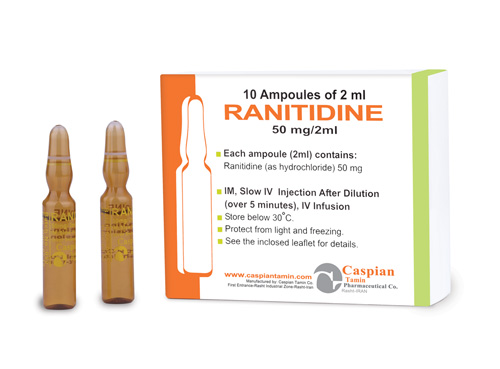
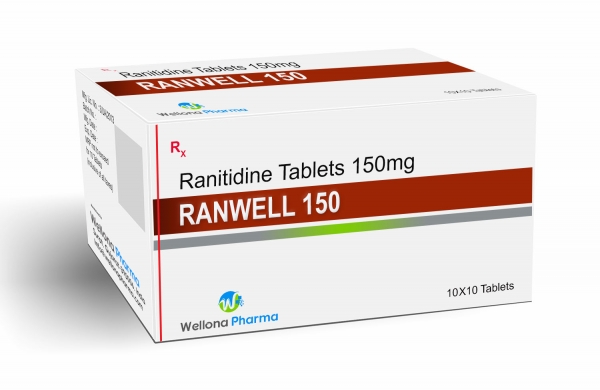
Ranitidine
Br120.00 Select options This product has multiple variants. The options may be chosen on the product page

